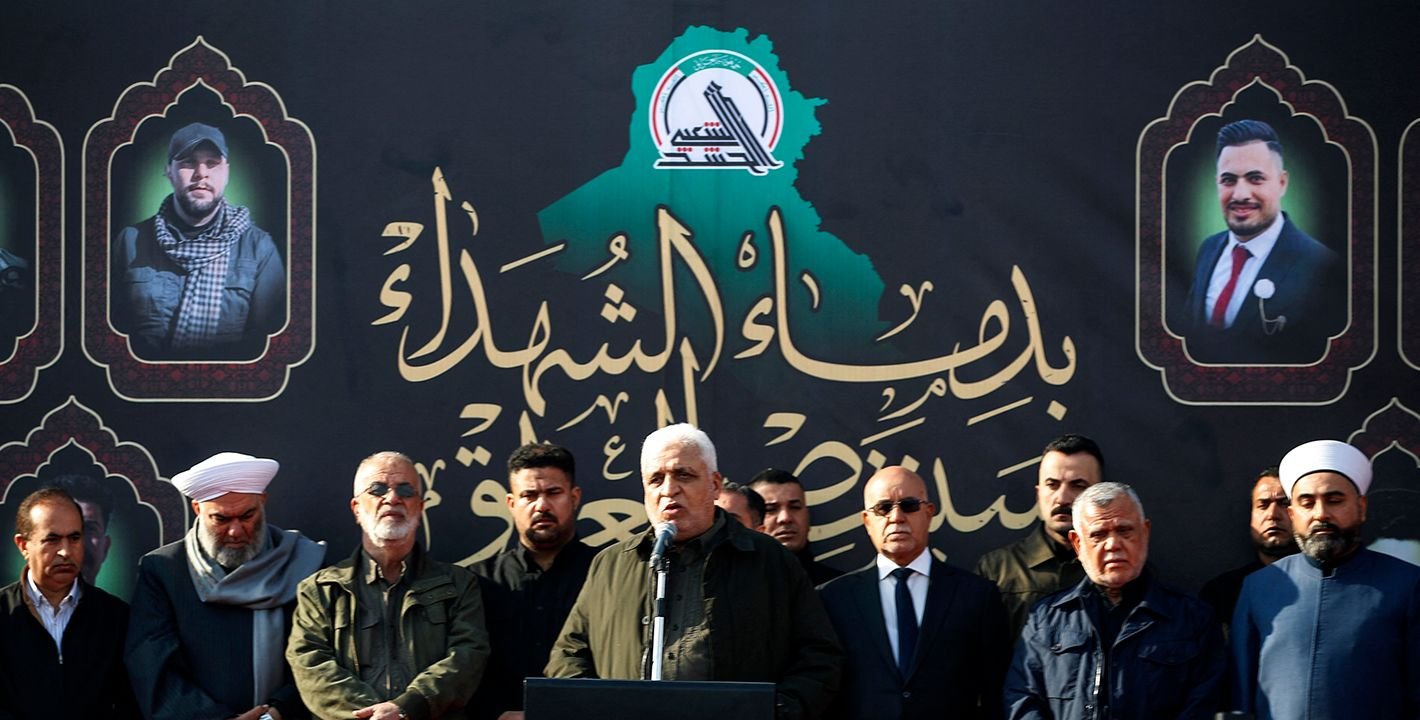US Pushes Iraq to Disarm Shia Militias, Block Bill Enabling IRGC-Style PMF Transformation

The United States has intensified its pressure on the Iraqi government to disarm Shiite militias and block the passage of a controversial bill that would expand and entrench the powers of the Popular Mobilization Forces (PMF or Hashd al-Shaabi), with Secretary of State Marco Rubio delivering a stern warning to the Iraqi Prime Minister about potential consequences.
Context: According to well-informed sources, Secretary of State Marco Rubio’s phone call with the Iraqi Prime Minister centered primarily on the future of pro-Iran Shia militias. A draft bill granting sweeping powers to the Popular Mobilization Forces (PMF/Hashd) recently completed its second reading in Iraq’s parliament despite opposition from Sunni and Kurdish factions. The legislation now requires only one final reading and vote to become law.
The proposed legislation would effectively transform the Hashd into another Islamic Revolutionary Guard Corps (IRGC), with its primary mission being “protecting the state order.” The draft grants PMF personnel financial benefits equivalent to those of the Iraqi army and allocates an annual budget for development and armament comparable to the Ministry of Defence. However, PMF members would carry the title “Mujahid” (holy warrior) rather than “soldier.”
Under the proposed law, the PMF Commission head would hold ministerial rank, serve on the National Security Ministerial Committee, and possess authority to delegate powers to the Chief of Staff or Secretary-General. This position would also exercise Defence Ministry powers in applying military law to PMF personnel.
The bill establishes 16 PMF departments and directorates, including the Chief of Staff, General Secretariat, Administrative and Financial Directorate, and the “Al-Muhandis General Contracting Company.” The PMF would operate its own military academy—the “Popular Mobilisation Forces Academy”—modeled after Defence and Interior Ministry academies, awarding bachelor’s degrees in military sciences.
Analysis: While the Rubio-Iraqi PM conversation was publicly characterized as covering various topics including Erbil-Baghdad dispute, these appear to have been secondary issues. The primary focus was US concerns about Shia militias, particularly as Shia factions advanced the Hashd draft bill’s second reading. This interpretation is supported by Marco Rubio’s personal tweet rather than official spokesperson readouts, with details confirmed by Iraqi media reporting that US pressure has “reached its peak” for Iraq to address American concerns by dissolving the Hashd and integrating them into mainstream Iraqi security forces.
Recent weeks have seen similar messages delivered through Chargé d’Affaires Steven Fagin, who issued stern warnings to Prime Minister Mohammed Shia al-Sudani about the urgent need to disarm Shiite militias and bring their weapons under state control. The American message is unambiguous: “If Iraq fails to resolve this issue independently, external pressure will intensify and decisive actions will be taken.”
Rubio’s call, in this context, signals a more direct and formal ultimatum against advancing the draft law that would entrench the Hashd as a parallel military institution.
PMF Composition Breakdown
The PMF consists of more than 70 armed factions, predominantly Shiite, with Sunni and minority groups also represented. Below is a rough demographic and factional overview.
Sectarian Composition
85% Shiite | 15% Sunni and Minorities
Factional Allegiances
44 Khamenei-aligned | 17 Sistani-aligned | 6 Others
Key Iran-Aligned PMF Factions
- Badr Organization (Hadi Amiri)
- Asaib Ahl al-Haq (Qais Khazali)
- Harakat Hezbollah al-Nujaba (Akram al-Kaabi)
- Kataib Hezbollah (Elite Iran-backed faction)
- Kataib Sayyid al-Shuhada (Abu Alaa al-Walai)
Pro-Iraqi State Factions (Sistani-Aligned)
- Al-Abbas Combat Division
- Imam Ali Brigades
- Ali al-Akbar Brigade
- Ansar al-Marjaiya
Washington has already begun exerting financial pressure. The PMF has been cut off from Iraq’s Qi Card salary payment system, and the bank responsible for processing its payroll has refused to continue out of fear of sanctions. As a temporary workaround, the PMF is now being paid in cash—but this arrangement is precarious and may trigger further punitive measures unless Iraq takes concrete steps to resolve the issue.
Despite vocal rejection from some pro-Iran Shia leaders ahead of upcoming November elections, many factions may accept this new reality. Most Shia factions operate under leaders who function as warlords and have built multi-billion dollar business empires—figures like Qais al-Khazali and Hadi Al-Ameri who would be reluctant to risk everything under US pressure. The primary challenge would be Kata’ib Hizbollah, which maintains a different organizational structure directly tied to the IRGC, making its position dependent on Iran’s strategic decisions in Iraq.
While most Shiite factions are ideologically aligned with Iran, their growing entanglement in corruption and commercial interests makes them more risk-averse, especially in the face of possible U.S. sanctions or targeted restrictions.
Recent Israeli strikes across the “Axis of Resistance” have further exposed the vulnerability of conventional weapons in a rapidly evolving battlefield. Some militia strategists now recognize that future conflicts will be shaped less by firepower and more by intelligence operations, cyber warfare, influence campaigns, and artificial intelligence. These shifting dynamics may be prompting factions to reconsider the value of retaining large armed units.
However, developments in Syria have heightened fears among Shia leaders about experiencing similar upheaval. This fear fuels arguments in favor of preserving the Hashd as a bulwark for the pro-Iran Shiite political order. The paradox remains that insisting on this course may invite precisely the type of US pressure that could force pro-Iran Shia groups to lose everything and precipitate the collapse of their entire system.









